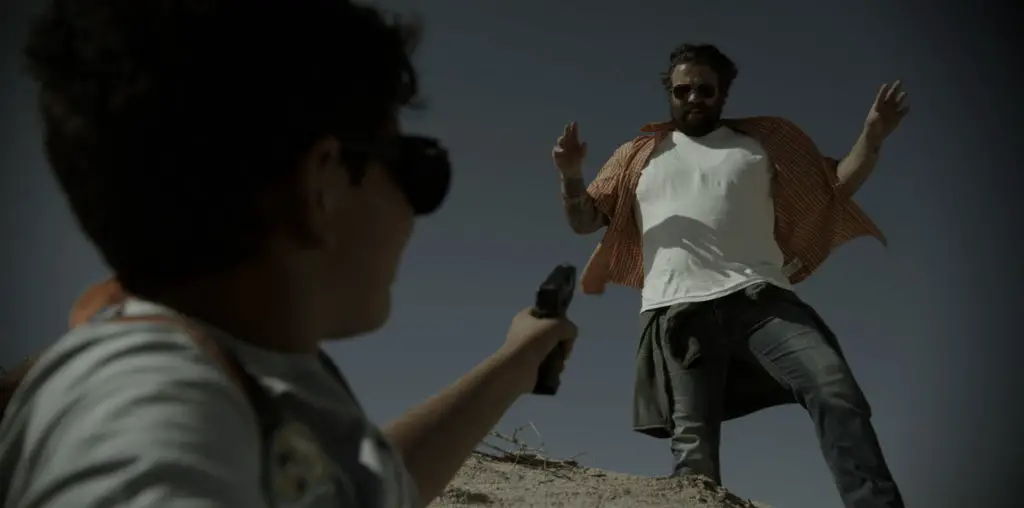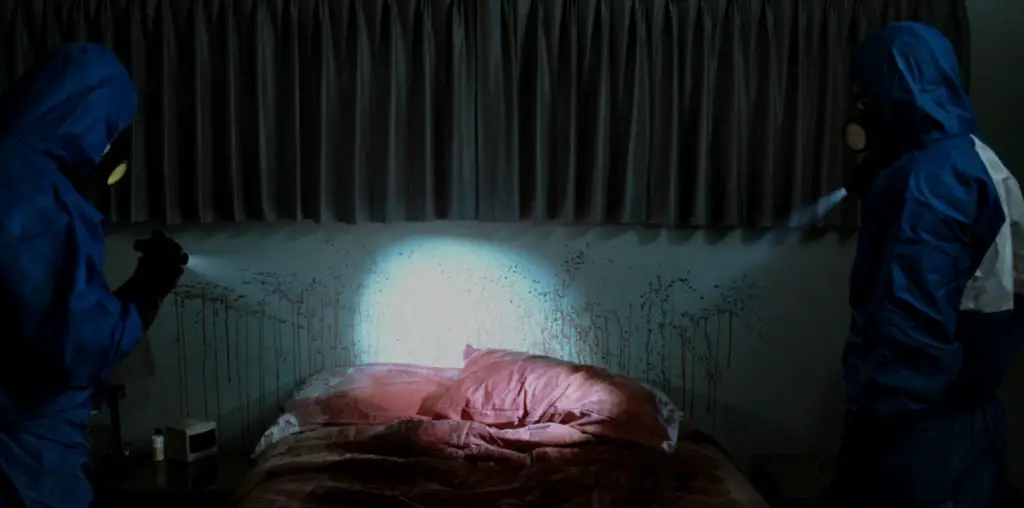
Taylor Hackford’s big screen bio of Ray Charles is an earnest exercise in the mold of Hollywood movies about other musical legends like Buddy Holly (The Buddy Holly Story), Ritchie Valens (La Bamba) and Jerry Lee Lewis (Great Balls of Fire) but certainly not one which ever threatens to break that mold. The film’s one real surprise, in fact, comes in the form of the uncanny performance given by Jamie Foxx.
In Ray, the actor morphs into his subject, not merely achieving physical resemblance and mimicking familiar mannerisms but speaking with the same voice and setting the keyboard ablaze with the same fire. It’s a shame the rest of the production doesn’t rise to the same level. While its director was content to make a competent biopic, its star strove for an act of portrayal just short of resurrection.
Charles, we learn, was a figure whose off stage persona differed radically from the one he presented to his public. Raised dirt poor in the south by a mother who made ends meet by taking in laundry, he discovered music and tragedy at roughly the same time. A grizzled neighbor taught him boogie piano in an establishment the child had been forbidden to enter. His younger brother died before his eyes after slipping and falling into a wash basin filled with scalding water. Not long afterward, at the age of seven, Charles lost his sight. The legacy his mother left him consisted entirely of a determination to be independent despite his handicap and to dream big.
He never used a cane or seeing eye dog, relying instead on sound to move through the world. Haunted, the film suggests, by the memory of his brother’s death and a sense of guilt for not having prevented it, the musician turned to a different sort of crutch. As much as his development as an artist, Charles’ twenty year dependency on heroin is the subject of Hackford’s portrait though both are noted in traditional Hollywood shorthand.
Movies about artists rarely provide meaningful insight into the process their subjects undergo to achieve creative breakthroughs and Ray is no exception. Charles begins his career as a charismatic imitator of Nat “King” Cole and lands a contract with Atlantic Records when pioneering founder Ahmet Ertegun senses his potential to become something more.
According to the film, the breakthrough which would propel him to superstardom-fusing gospel with rhythm and blues-resulted in serendipitous fashion from his falling in love with a preacher’s daughter (Kerry Washington). A sexual encounter inspires him to compose “I Got A Woman” spontaneously on the reverend’s piano. He marries her and starts a family but that doesn’t stop Charles from having other relationships-and other children-with women while on the road. In a later scene, one such affair goes sour. The two quarrel and, the next thing you know, Charles is at the keyboard knocking out “Hit The Road Jack.”
While the picture portrays its subject as a genial junkie and a genius who tossed off groundbreaking classics effortlessly, it achieves greater credibility with its depiction of Charles the shrewd businessman. In his early days, he insisted upon being paid in singles to avoid being cheated. Once he had achieved success at Atlantic and his contract expired, Charles turned his back on the people who had nurtured his music and negotiated a deal with ABC Paramount which was said to be “better than Sinatra’s.” Later still, he severed ties with one of his oldest friends and aides based on his suspicion that the fellow was making side deals. He may have been all smiles on stage but, behind the scenes, Ray Charles was a man you did not mess with.
The heart of Ray, of course, is the music and, whatever other shortcomings the film may have, it does not fall short as a showcase for the artist’s greatest hits. They are presented in all their red hot, highly intricate, soulful glory and anyone who has heard them performed by the musician primarily in his later years on a small screen is likely to be blown away by what he hears in the cineplex, especially one with a state of the art sound system. Jamie Foxx may be at the microphone but Ray Charles has never sounded better.

